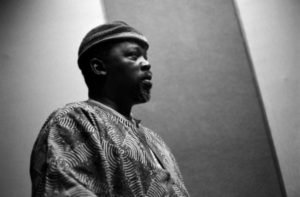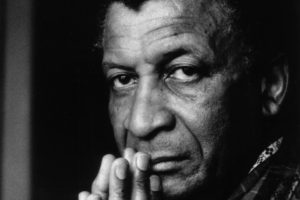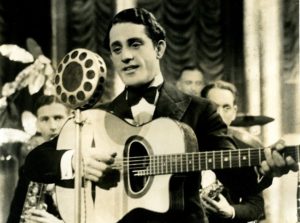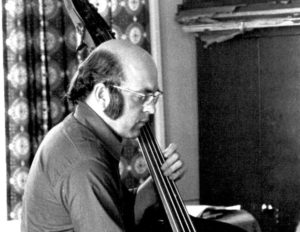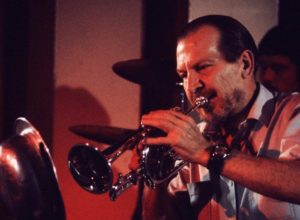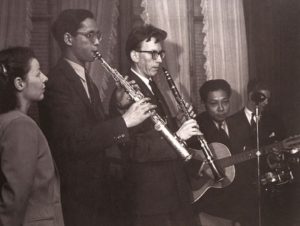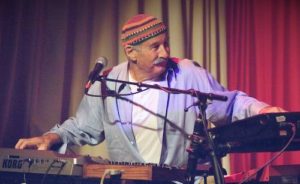Jean-Serge Essous
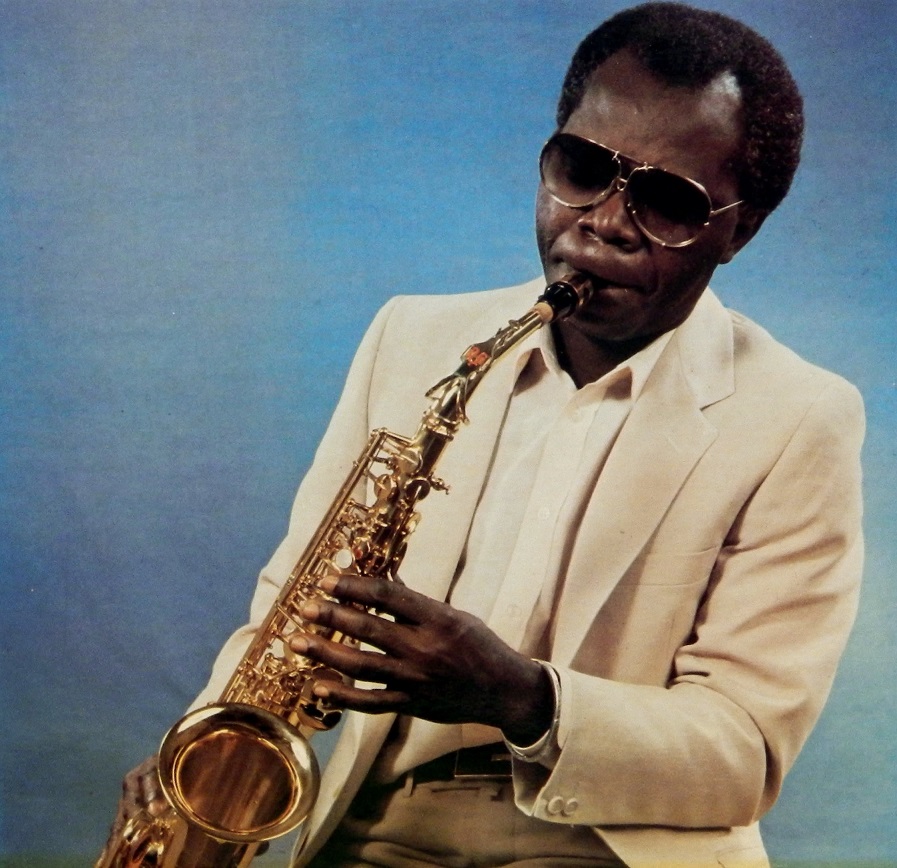
Jean Serge Essous (1935-2009) was born in Mossendjo in what was then French Equatorial Africa, today in the Republic of the Congo or Congo-Brazzaville. His father worked as a nurse in the colonial service. When Essous was 12 years old, his father brought home a gramophone along with records by Latin American artists as well as Louis Armstrong. Living in Brazzaville in the early 1950s, Essous had to drop out of school to work as an electrician and support his mother, after his father left the family. He had learned to play the pipeau (a reed pipe) as a boy, and his first semi-professional work was in a pipeau group, accompanying dancers from different ethic groups, the Ballet Diaboua. When the band broke up, Essous found a job at IBM in Brazzaville, and started to learn the clarinet. He met and began to practice with fellow musicians, saxophonist Nino Malapet, Edo Ganga and Celestin Kouka, and in 1955 inaugurated their new band, Negro Jazz. The band found work playing in The Quist and then Air France, night clubs in Leopoldville, what is now Kinshasa in the DRC.
Essous and Malapet were asked to join singer-guitarist Franco Luambo‘s band as studio session musicians initially. Launching the new band at the OK Bar in 1956, the band took the name OK Jazz. Later renamed TPOK Jazz, they became one of the most successful of all Congolese bands. Luamba’s guitar playing was distintive and the band suffused Congolese rhythms with the popular rumba style initiated by Le Grande Kallé’s African Jazz a few years earlier. As with that band, the term ‘jazz’ was inspired more by the cultural importance of figures like Duke Ellington and Armstrong, rather than a description of the music they played. Having said that, the horn arrangements, often by Essous himself show a strong jazz influence.
In 1957, while still a member of OK Jazz, Essous formed a new studio band, the Orchestre Rock-a-Mambo, which allowed him to further explore his love of Afro-Cuban music. From 1959 to 1966, he led the Bantous Orchestra, which secured a lucrative one year residency in Senegal. Frustrated at the Congolese government’s insistence that the band return to Brazzaville to perform for independence day celebrations, Essous left the band and moved to Paris. There he sought out Manu Dibango and together with Le Grand Kalle (Joseph Kabasele), they formed L’African Team De Paris, which produced a number of all-star Afro-Latin-Jazz records. During the same period, Essous also joined Ry-Co Jazz. This latter band toured the Caribbean and played a residency in Martinique, where Essous met his wife.
Essous and his young family returned to Brazzaville in 1970, and reformed Les Bantous, touring them in Cuba several times, and performing in Nigeria at the Pan-African Cultural Festival in 1977. Essous spent a spell as cultural advisor to the Congo’s first democratically elected president, Lissouba (1992-97) and in 2006, he was made a UNESCO artist for peace. Although much of the music Essous performed in his career is only tangentially jazz-related, his soloing on something like Ryco-Jazz’s ‘Essous-Spiritou’, demonstrate his skill as an improvisor, and he is certainly an important and underrated figure in African music.
I’ve included him under both the Republic of Congo and the Democratic Republic of Congo, as he played an important role in the history of music in both modern countries.
Key Recordings:
Congo Revolution (Soul Jazz 2019)
